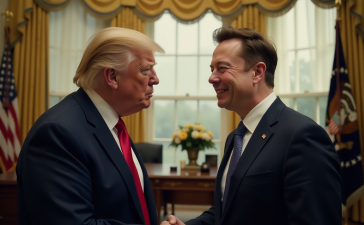Eco-minded UK politicians are like student communists: plenty of manifestos but no actual revolutions. There is certainly no faulting the productivity of the current administration’s printing presses. A fresh avalanche of government energy policy papers arrived on Thursday.
The event was originally dubbed “Green Day”. It was rebadged as “Powering Up Britain” after the marijuana jokes began. There is one clear conclusion to be drawn from the 2,800-plus pages published, whatever the strap line: a little less talk and a little more action is needed.
Since 2020, the government has pushed out an energy white paper that promised to “power our next zero future”, a ten point plan for a “green industrial revolution” and a British energy security strategy.
Most important, in 2021 ministers delivered a net zero strategy that pledged to “build back greener” but was last year deemed unlawful by the UK High Court because it was too vague. That court case is to blame for “Powering Up Britain”.
What all of these plans have in common is they are strong on platitudes and far-off targets. Delivering them is a bigger problem.
That’s not to say there aren’t some good nuggets in the latest strategy. In particular, UK-based steelmakers cheered a consultation on a “carbon border adjustment mechanism”. If adopted, this would allow them to compete on a level playing field with rivals in countries where carbon costs aren’t imposed.
On the downside, there will be arguments for months over a big bet by prime minister Rishi Sunak on carbon capture and storage technology, where carbon is caught before it is released into the atmosphere and buried. Environment groups vehemently oppose it on the grounds they believe it would allow oil and gas production to expand. A new mandate for electric vehicles has also been watered down.
Policy paper fatigue has set in among many in the energy industry. Ministers will no longer be judged by their enthusiastic pledges but by whether they can get shovels in the ground and projects up and running.
Emma Pinchbeck, chief executive of trade body Energy UK, summed the mood up, saying that “most importantly” the plans “must now be followed by a relentless drive over the coming weeks, months and years to deliver on them”.
The glacial pace of planning and lengthy delays to connect projects such as wind and solar to the electricity grid remain a number one gripe for energy companies. It’s little wonder. Offshore wind projects currently take more than ten years from conception to production, according to the group RenewableUK. The UK aims to have 50GW of offshore wind capacity by 2030. Today that figure is just 14GW.
Sir John Armitt, National Infrastructure Commission chair, has also urged the government to “move from setting targets to delivering on the ground”.
There are a few signs the government has been listening. It has appointed an “electricity networks commissioner” — former National Grid UK chief executive Nick Winser — who will advise later this year on how to halve the time it takes to build new electricity transmission lines.
Ministers are also reviewing the consenting process for infrastructure deemed “nationally significant”.
Nuclear executives are optimistic that the launch — albeit delayed — of an independent body to oversee the delivery of nuclear projects will finally kick-start a new age of atomic energy projects.
Absent, though, were other desired measures such as a legal net zero mandate for Ofgem, the regulator that oversees spending on electricity grid infrastructure. For many executives, the timescales cited for the consenting and grid connections reviews are still too vague and long.
There could be the threat of further legal action. The government admitted in one of its documents on Thursday that its plans would only deliver 92 per cent of the reductions required to achieve its 2030 emissions goal, although it said it would bring forward further measures to meet its commitments if required.
If a Labour government takes power at the next general election, it has promised yet more plans to make Britain “a clean energy superpower” by 2030.
At present, green manifestos are doing more for net zero by sequestering carbon in their pages than through many of the policies contained in them.










